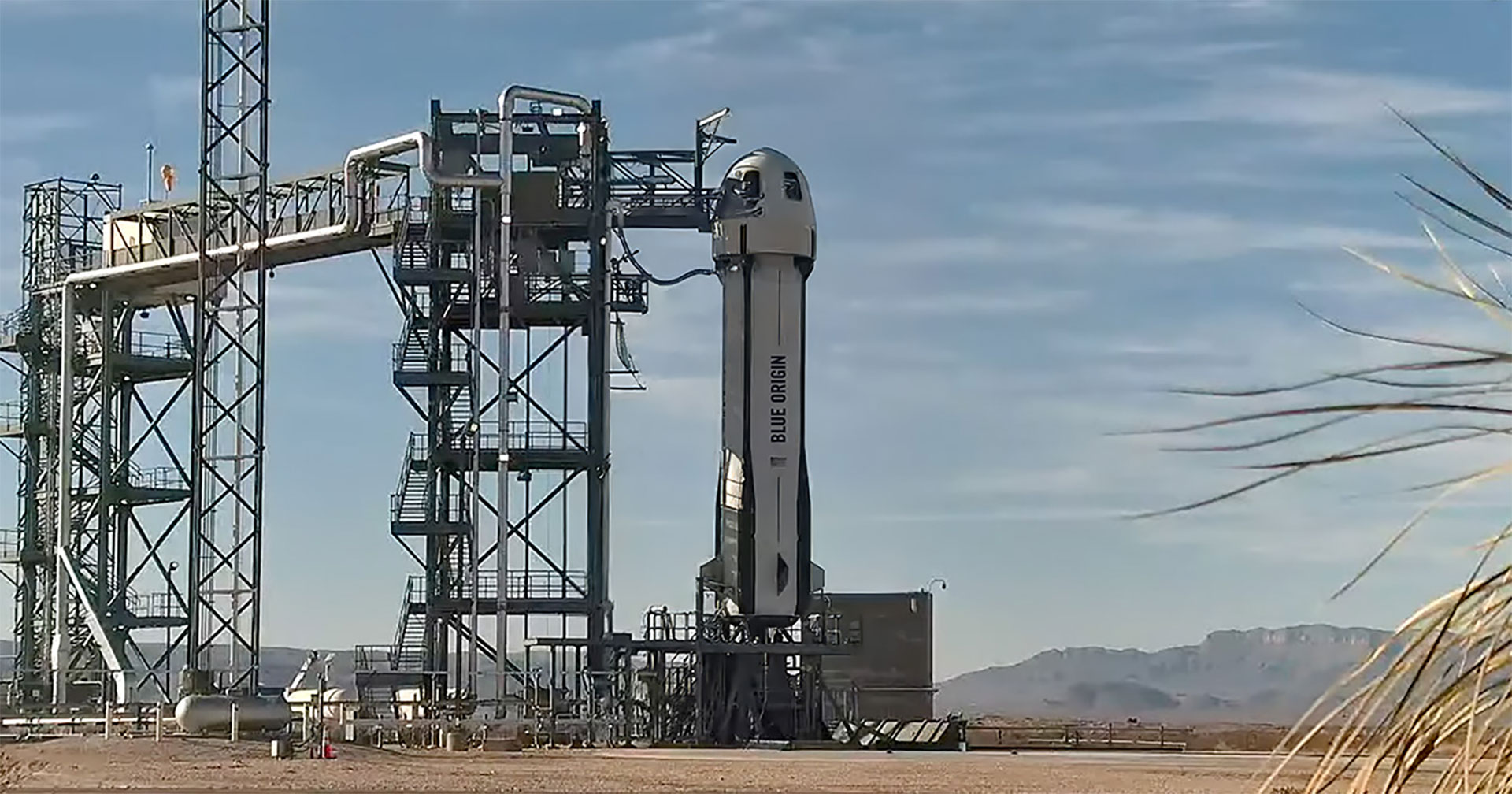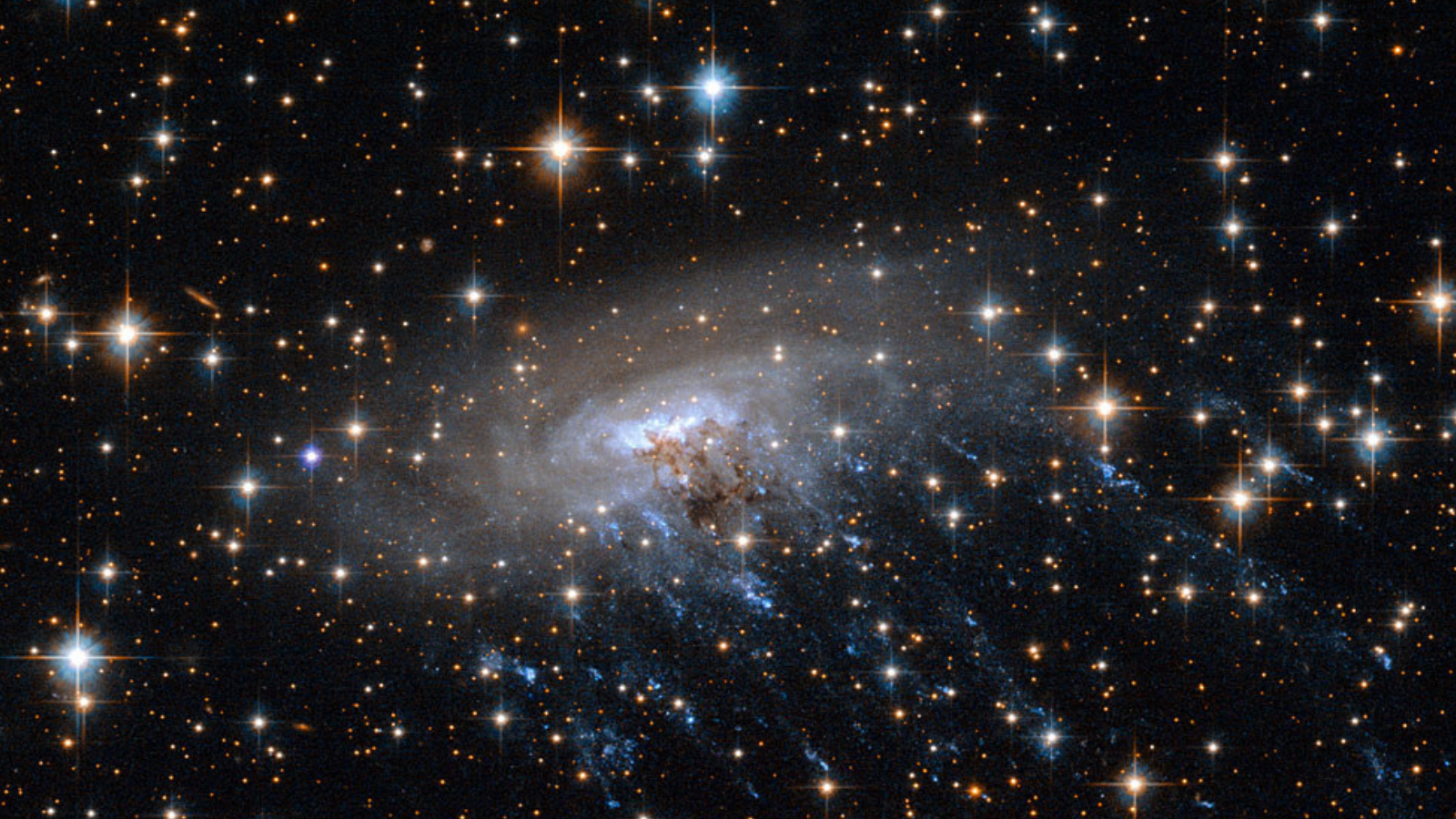Blue Origin postpones launch of 200th payload on 35th New Shepard rocket again due to avionics issue
Blue Origin's New Shepard rocket is set to launch an uncrewed science mission to suborbital space. The company has yet to determine a new launch date.

Breaking space news, the latest updates on rocket launches, skywatching events and more!
You are now subscribed
Your newsletter sign-up was successful
Want to add more newsletters?

Delivered daily
Daily Newsletter
Breaking space news, the latest updates on rocket launches, skywatching events and more!

Once a month
Watch This Space
Sign up to our monthly entertainment newsletter to keep up with all our coverage of the latest sci-fi and space movies, tv shows, games and books.

Once a week
Night Sky This Week
Discover this week's must-see night sky events, moon phases, and stunning astrophotos. Sign up for our skywatching newsletter and explore the universe with us!

Twice a month
Strange New Words
Space.com's Sci-Fi Reader's Club. Read a sci-fi short story every month and join a virtual community of fellow science fiction fans!
Update for Aug. 26: Blue Origin will not launch its latest uncrewed mission on Aug. 26 after all. "We're standing down on today's NS-35 launch attempt to continue to troubleshoot an issue with the booster's avionics. We're determining the next launch opportunity," the company wrote on its NS-35 mission page.
Blue Origin, the private spaceflight company founded by billionaire Jeff Bezos, will attempt to launch an uncrewed rocket on a science mission at date still yet to be determined. When it happens, you'll be able to watch it live online.
The company's reusable New Shepard rocket will launch a set of experiments into suborbital space from Blue Origin's Launch Site One in West Texas. The company stood down from an initial attempt on Saturday (Aug. 23), which was thwarted by a technical issue. "The team encountered an issue related to the booster's avionics," Blue Origin officials announced on social media at the time. A second attempt on Aug. 26 was also canceled due to the same issue, the company wrote on a mission description.
The Blue Origin launch, called NS-35, will send the company's 200th payload above the Kármán line on this uncrewed suborbital flight, which will include experiments and research designed by students, teachers and university teams. When ready, the NS-35 flight, will lift off from Blue Origin's Launch Site One in West Texas. A live webcast of the entire 10-minute spaceflight is planned to start 15 minutes before the launch. You can watch it live on BlueOrigin.com; Space.com will simulcast the stream, if Blue Origin makes it available.
"RSS H.G. Wells," Blue Origin's first New Shepard capsule devoted to carrying only payloads (rather than people), will fly the NS-35 mission. Both the cabin and its booster are planned to be recovered, with the latter making a propulsive landing on a concrete pad near its launch site and the former descending back to Earth under parachutes.
Among the NS-35 payloads are two dozen experiments that were chosen as part of NASA and Future Engineers' TechRise Student Challenge, including studies into cultivating plants in microgravity, the physics of liquids and medical research.
Other investigations on NS-35 were designed by educators as part of the Teachers in Space program. Their payloads will collect data on sound levels generated during the flight, radiation levels and the environmental conditions aboard the capsule.
Breaking space news, the latest updates on rocket launches, skywatching events and more!
Additional experiments on board are flying for the Johns Hopkins Applied Physics Laboratory, Oklahoma State University, the University of Florida, University of Central Florida, Teledyne and Space Lab Technologies.
Carthage College in Wisconsin will test new methods for gauging propellant levels in space, while a Teledyne payload, developed with NASA's Glenn Research Center in Cleveland, will test the a spacecraft fuel cell system before its possible use on moon and Mars missions.
A clutch of 432 sensors will record the effects of being coated with a new type of chemical coating, and a modified FLEX fluorescence imaging system previously tested aboard the International Space Station will make its first suborbital journey on NS-35.
As on all of Blue Origin's New Shepard flights, crewed or uncrewed, the company is also carrying postcards on behalf of its not-for-profit organization, "Club For the Future." The cards will be stamped after the flight as having reached space and then returned to the students and others who decorated their fronts.
NS-35 will be Blue Origin's 5th flight by the H.G. Wells capsule and 21st uncrewed New Shepard mission.
Editor's note: This article, originally posted on Aug. 22, was updated on Aug. 25 and again on Aug. 26 to reflect delays to Blue Origin's NS-35 New Shepard mission.

Robert Pearlman is a space historian, journalist and the founder and editor of collectSPACE.com, a daily news publication and community devoted to space history with a particular focus on how and where space exploration intersects with pop culture. Pearlman is also a contributing writer for Space.com and co-author of "Space Stations: The Art, Science, and Reality of Working in Space” published by Smithsonian Books in 2018.
In 2009, he was inducted into the U.S. Space Camp Hall of Fame in Huntsville, Alabama. In 2021, he was honored by the American Astronautical Society with the Ordway Award for Sustained Excellence in Spaceflight History. In 2023, the National Space Club Florida Committee recognized Pearlman with the Kolcum News and Communications Award for excellence in telling the space story along the Space Coast and throughout the world.
You must confirm your public display name before commenting
Please logout and then login again, you will then be prompted to enter your display name.
